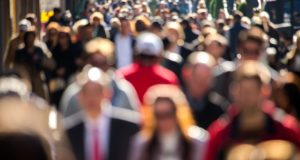
The natural functions of ecology and humans should be a perfect fit. Millions of years of the evolutionary process should have perfected the balance between these two factors. Yet, human misunderstanding of ecology on the most base levels is glaring. And, becoming dangerous. The major commentary on this misunderstanding, is, of course, a neo-awareness of global warming, hazardous pollutants in air, soil and water. It all began with the first ecological imbalance: assuming humans have supremacy over ecology. The best analogy is the skin covering human bodies. It fits perfectly to the skeletal system. So, too should humans fit into the ecological realm.
So, why is there such an adversarial posturing by many people who decry any progress toward preserving ecology and the balance of nature? Foolishly, a large part of the world’s population prefer blinders to the damage their personal actions have on ecology. For many centuries, it was assumed the vast oceans were “self-cleaning”. Ocean dumping was at peak levels. Until, ecology and humans faced the disasters of hazardous waste washing up on shores, mass populations of dead and dying fish and sealife and the ecological balance tilted dangerously toward huge bodies of water found to be polluted, unfit for swimming or seafood for human consumption. Recently, coral reefs were found to be dying in undersea beds due to pollution and the rise in sea water temperatures.
But the assault didn’t stop with water pollution. Air pollution affects ecology and humans by destroying pro-creative processes in a kind of slow mutation. Once deforestation occurs from acid rain and other hazardous pollutants, the next most inevitable step is the imbalance of ecology on birds, insects and other animals. What these creatures feed upon is no longer the natural dietary components that are required for normal growth and procreation. Humans view most of the remaining animal life on the planet in a type of controllable fairy tale attitude. Polar bears seeking food closer to human habitats, black and brown bears, likewise take advantage of easy feeding from trash cans, all weakening their ecological survival. Soil receives a large percentage of pollutants from human lifestyle.
A simple issue of deer over-population sends humans scurrying for hunting groups to “thin herds”. Native Americans and other aboriginals knew and understood keenly respect for ecology. Oddly, with higher levels of education, ecology and humans no longer co-habitate compatibly. The problem this presents is obvious. Can life on this planet survive without some sense of respect for ecology? Or, will the human design resort to synthetic plant and animal life to satisfy their needs? There are growing signs that humans have begun to restore what they’ve destroyed for generations. Protection of the rain forests, for example, and, stricter compliance to plant and animal endangered species regulations. The ecological equation existed long before human intelligence commanded more rights to control it. That’s the basis of the misunderstanding. Humans must address their inability to control every facet of ecology in order for a true ecological balance to exist.

Source by Wendy Pan
 Vitamin Agent The Health & Naturalistic Source
Vitamin Agent The Health & Naturalistic Source


